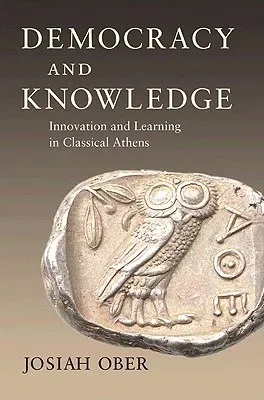When does democracy work well, and why? Is democracy the best form of
government? These questions are of supreme importance today as the
United States seeks to promote its democratic values abroad. Democracy
and Knowledge is the first book to look to ancient Athens to explain
how and why directly democratic government by the people produces
wealth, power, and security.
Combining a history of Athens with contemporary theories of collective
action and rational choice developed by economists and political
scientists, Josiah Ober examines Athenian democracy's unique
contribution to the ancient Greek city-state's remarkable success, and
demonstrates the valuable lessons Athenian political practices hold for
us today. He argues that the key to Athens's success lay in how the
city-state managed and organized the aggregation and distribution of
knowledge among its citizens. Ober explores the institutional contexts
of democratic knowledge management, including the use of social networks
for collecting information, publicity for building common knowledge, and
open access for lowering transaction costs. He explains why a
government's attempt to dam the flow of information makes democracy
stumble. Democratic participation and deliberation consume state
resources and social energy. Yet as Ober shows, the benefits of a
well-designed democracy far outweigh its costs.
Understanding how democracy can lead to prosperity and security is among
the most pressing political challenges of modern times. Democracy and
Knowledge reveals how ancient Greek politics can help us transcend the
democratic dilemmas that confront the world today.

